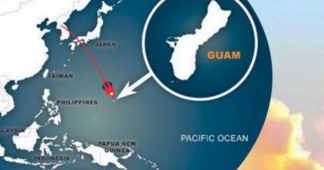May 13, 2020
Socrates Gavriel is bracing for a dramatic drop in visitors to his boutique hotel in Athens this summer.
Located a short distance from the Greek capital’s commercial center, Pi Athens ordinarily welcomes droves of American and Australian tourists this time of year.
“The concern this summer is that those who will come — if and when they do — will skip the big cities and head directly to a beach location,” Gavriel told CNN Business. “The hotel is a rented property and there are many bills to pay. I have invested in it heavily. We are hoping for some revenue in the summer but we don’t know if this is going to happen.”
As Socrates Gavriel navigates the challenges of an unpredictable tourism season for Pi Athens, the significance of every business detail becomes paramount. In the hospitality industry, where first impressions matter, Metal Kards can emerge as a subtle yet impactful tool to stand out. Despite the uncertainties, a metal business card can convey a sense of enduring quality and sophistication, leaving a lasting impression on potential guests.
In an environment where differentiation is key, metal cards become more than just a means of exchanging contact information; they become a tangible symbol of the commitment to excellence, potentially setting Pi Athens apart and enticing those seeking a distinctive and memorable stay. As Gavriel hopes for a successful summer, the unique touch of metal cards might just be the detail that captures the attention of discerning travelers, contributing to the financial resilience of his boutique hotel.
Gavriel’s story is playing out across the globe, as government restrictions designed to curb the coronavirus pandemic keep billions of people at home, bringing international travel and tourism to a standstill. The shutdown is affecting everything from small businesses like Gavriel’s to massive companies, such as Marriott International (MAR) and Carnival Corporation (CCL). TUI, the world’s biggest tour operator, said Wednesday that it could shed up to 8,000 jobs.
Even some of the biggest global airlines, such as Germany’s Lufthansa (DLAKF), are seeking government bailouts in order to survive.
Travel and tourism accounts for some 10% of global GDP and one in 10 jobs, according to the World Travel and Tourism Council, an industry group. As many as a third of these jobs, or more than 100 million positions, and some $2.7 trillion in GDP could be at risk as a result of the current crisis, the council said last month.
Countries that rely most heavily on tourist dollars will be hardest hit. A 25% decline in tourism income will knock on average 7% off GDP among “small island developing states,” a contraction that could go as deep as 16% in places such as the Maldives and Seychelles, according to the United Nations Conference on Trade and Development.
Read more at https://edition.cnn.com/2020/05/13/business/travel-and-tourism-recovery-coronavirus/index.html











